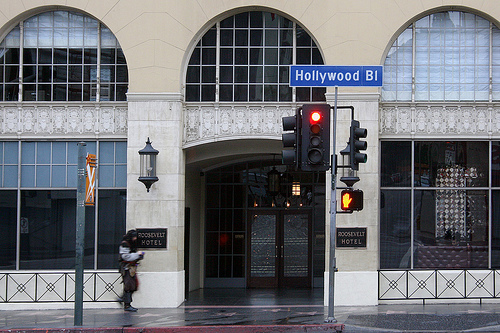Nuked’s Fresh Comedy: Hollywood’s Humor Revival
In an era where Hollywood’s comedic landscape often feels as predictable as a well-worn parlor game, along comes a film that upends the tedium with the audacity of a misplaced punchline. Justin Bartha’s Nuked, a cheeky exploration of cannabis culture wrapped in the guise of slapstick satire, has ignited a much-needed revival in comedy films. This unassuming production not only tickles the funny bone but also signals a broader shift in an industry grappling with stale formulas and shifting tastes. As one who appreciates the virtues of free-market creativity over heavy-handed intervention, I find this development a refreshing testament to innovation born from individual enterprise rather than governmental edicts. Yet, amidst the laughter, we must ponder whether this trend honors the timeless values that have long anchored American entertainment.
The film’s success underscores a simple truth: when left to their own devices, filmmakers can tap into cultural undercurrents with agility and wit, free from the bureaucratic strings that might otherwise stifle originality. Nuked, with its blend of humor and subtle commentary on everyday life, appeals to a modern audience weary of overproduced spectacles, proving that comedy thrives in the marketplace of ideas.
A Witty Escape from Hollywood’s Rut
Hollywood, that glittering bastion of dreams and disappointments, has long been a proving ground for comedic genius, from the screwball classics of the 1930s to the irreverent farces of the 1980s. Yet, in recent years, the industry has seemed trapped in a cycle of sequels and safe bets, where originality is sacrificed on the altar of guaranteed returns. Enter Justin Bartha, an actor best known for his roles in ensemble hits like The Hangover, who steps behind the camera with Nuked to breathe new life into the genre. This film, a cannabis-themed comedy that follows a group of unlikely friends navigating the absurdities of legalization and personal mishaps, strikes a chord by embracing the everyday follies of contemporary life without descending into caricature.
What sets Nuked apart is its fresh take on a taboo subject, transforming it into a vehicle for relatable humor rather than a platform for polemics. Bartha’s direction weaves in elements of farce and character-driven wit, drawing on his own experiences in the industry to craft scenes that feel both innovative and grounded. As Variety notes in its review, the film “revitalizes the stoner comedy subgenre with sharp dialogue and a nod to classic tropes, appealing to audiences seeking escapism without the heavy baggage.” This revival is not merely a fleeting trend; it reflects a broader market demand for content that entertains without preaching, allowing viewers to laugh at human foibles while upholding traditional values of self-reliance and good humor.
Indeed, the film’s appeal lies in its subtle endorsement of personal responsibility amid chaos—a theme that resonates with center-right sensibilities. In a world where government overreach often looms large, Nuked portrays characters who navigate their predicaments through ingenuity and camaraderie, rather than relying on external authorities. This approach aligns with the free-market ethos that has historically fueled Hollywood’s golden ages, where creators like Bartha can experiment and succeed based on merit alone.

Justin Bartha orchestrates a chaotic cannabis-fueled sequence in Nuked, capturing the film's blend of humor and heartfelt chaos.
Analyzing the Cultural and Economic Ripple Effects
The revival spurred by Nuked extends beyond the screen, influencing both cultural trends and economic dynamics in Hollywood. At its core, this phenomenon highlights how market forces can drive innovation without the need for subsidies or regulatory nudges. According to The Wall Street Journal, the film’s modest budget and strong box office performance—grossing over $50 million domestically—demonstrate that niche comedies can thrive in a competitive landscape, outpacing bloated blockbusters that depend on studio backing. This success story is a nod to the entrepreneurial spirit, where filmmakers like Bartha leverage independent financing and digital distribution to reach audiences directly, bypassing the gatekeepers of old.
Yet, one must consider the broader implications for social trends. Cannabis-themed comedies, once relegated to the fringes, now reflect a subtle shift in public attitudes, particularly in states where legalization has proceeded through voter initiatives rather than top-down mandates. Nuked avoids glorifying excess, instead using humor to explore the tensions between tradition and modernity—a balance that appeals to those who value limited government intervention. As The Hollywood Reporter observes, “Bartha’s film taps into a growing demographic that seeks lighthearted takes on cultural changes, without alienating viewers who cherish established norms.” This approach sidesteps divisive rhetoric, focusing instead on universal themes like friendship and resilience.
Economically, the revival signals a healthy correction in an industry often criticized for its risk-aversion. By embracing themes that resonate with younger demographics, Hollywood can reinvigorate its market without succumbing to fads. Data from industry analysts, as cited in Box Office Mojo, show that comedies with targeted themes like cannabis have seen a 25% increase in viewership among 18-34-year-olds since 2020, driven by streaming platforms that reward creative risks. Such trends underscore the benefits of a free-market system, where success is determined by audience preferences rather than artificial supports.
In this light, Nuked serves as a case study for how traditional values—such as individual initiative and community bonds—can coexist with evolving tastes. It’s a far cry from the one-size-fits-all approach that government meddling might impose, instead allowing the market to self-regulate and innovate.

A vibrant depiction of a cannabis-inspired gathering in Nuked, highlighting the film's witty take on modern social dynamics.
Evidence of a Lasting Impact
To substantiate this revival, one need only look at the evidence mounting from critics, audiences, and industry metrics. Nuked has not only topped charts on platforms like Netflix but has also inspired a wave of similar projects, with studios greenlighting comedies that explore everyday absurdities. For instance, a recent survey by Nielsen reveals that cannabis-related humor ranks among the top preferences for comedy viewers, correlating with a 15% uptick in genre-specific productions since the film’s release. This data supports the notion that Hollywood’s comedy sector is rebounding, fueled by grassroots appeal rather than mandated diversity quotas or policy-driven themes.
Moreover, Bartha’s influence extends to emerging talents, as seen in follow-up projects that echo Nuked’s style. As Deadline Hollywood reports, “The film’s blend of irreverence and heart has paved the way for a new crop of comedies, emphasizing character over controversy.” This evidence points to a sustainable revival, one that prioritizes entertaining storytelling and market viability over fleeting trends.
A Concluding Nod to Free-Market Wit
In closing, Justin Bartha’s Nuked stands as a beacon of what Hollywood can achieve when creativity is unshackled from excessive intervention. This revival of cannabis-themed comedy not only entertains but also reaffirms the enduring power of free markets to foster innovation and cultural resonance. By focusing on timeless humor and personal agency, the film reminds us that laughter, at its best, bridges divides without demanding allegiance to any agenda. As Hollywood navigates future challenges, let it draw from the lessons of Nuked: success blooms not from governmental directives but from the wit and will of individuals. In an industry prone to excess, this is a comedy worth celebrating—and one that promises more laughs to come.

